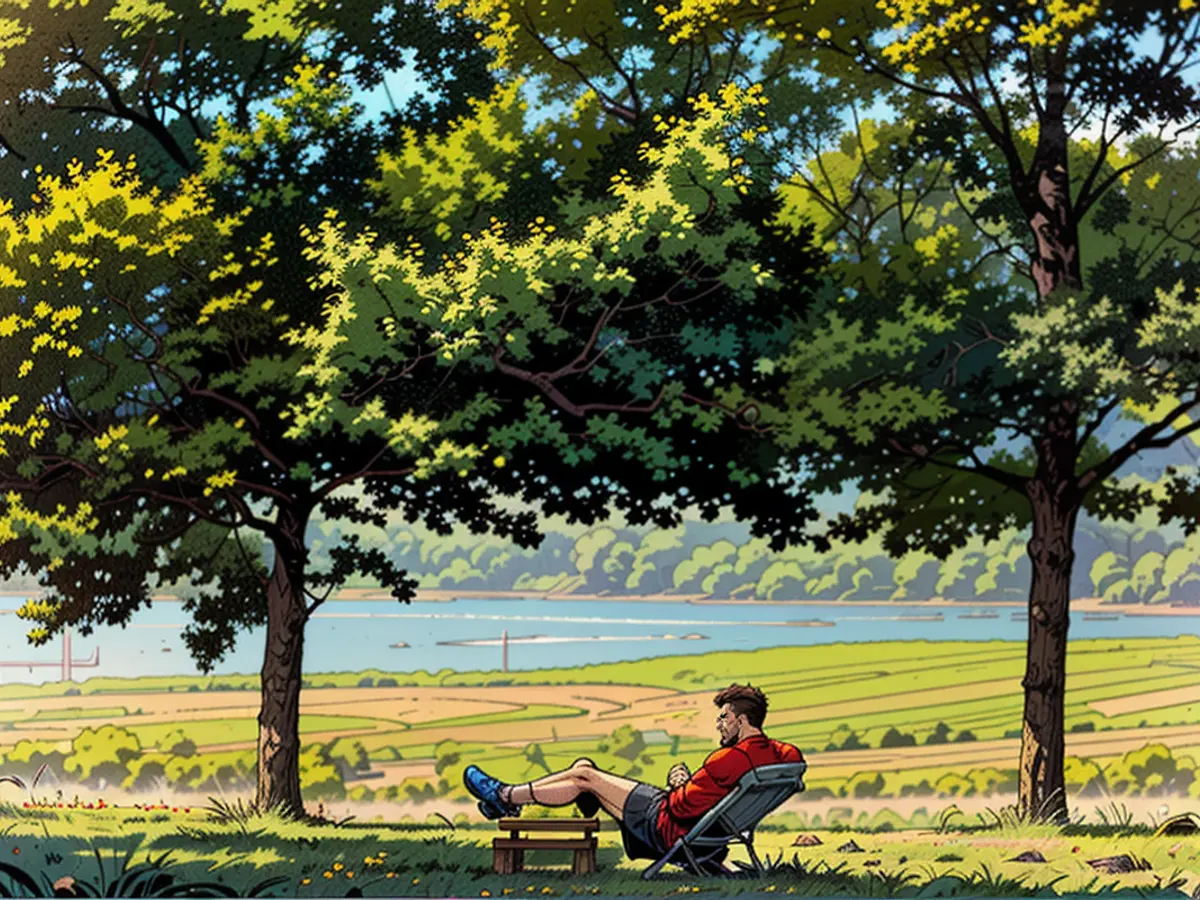- North Rhine-Westphalia cities against heat - Action plans and other measures
In North Rhine-Westphalia, only two municipalities have implemented a heat action plan so far, according to the Ministry of Health. Corresponding plans are currently being implemented in Cologne and the district of Kleve, the ministry reported. Meanwhile, completed heat action plans are available in Dortmund and Bielefeld, allowing them to be implemented from now on.
In 13 other districts and independent cities, heat action plans are currently in progress, including Aachen, Düsseldorf, Münster, Hagen, Leverkusen, Bochum, and Wuppertal. A further 22 districts and independent cities plan to start work on a heat action plan in the future, including Gelsenkirchen, Hamm, Mönchengladbach, Oberhausen, and Solingen, as well as the districts of Steinfurt, Rhein-Sieg, and Coesfeld.
Heat protection without a plan
The Ministry of Health points out that the status of a heat action plan in a municipality does not necessarily reflect the status of heat protection. "Many municipalities without a finalized heat action plan are already developing and implementing individual heat protection measures," it said.
Moreover, the process of creating municipal heat action plans is dynamic and does not always follow a fixed pattern. In many municipalities, individual heat protection measures are already being developed and implemented without a finalized heat action plan.
Plans in Dortmund and Bielefeld
The approved heat action plan for the city of Dortmund outlines protective measures in three packages: information and sensitization of the population, such as through campaigns, measures during acute heat waves, like warning systems, sun sails, and drinking fountains, and long-term adaptations, including monitoring of heat events. The plan is not completed but is being implemented, improved, and expanded step by step.
The heat action plan approved for Bielefeld in March contains recommendations for dealing with heat for the population and care facilities, especially for people vulnerable to heat. Implementation of the plan has already begun, with a focus initially on public relations, further training, and support for facilities, as reported by the city.
Fountains, heat telephone, and cool places
Regardless of heat action plans, many cities are raising awareness online through portals, heat telephones, or flyers on how to deal with heat. Numerous cities also have free drinking water fountains, including Dortmund, Düsseldorf, Bonn, Cologne, Bielefeld, Bochum, and Krefeld. For homeless people, sun sails, summer sleeping bags, drinking bottles, and sun protection cream are often provided from state funds in many places.
In Münster, in addition to the heat action plan, further measures are planned, such as training offers for volunteers who care for elderly people or communicate suitable protective measures. Additionally, cool public spaces will be marked with the sticker "Münster stays cool." The city of Essen already provides information about such places using the digital map application "Cool places."
Also, in Düsseldorf, a map of cool spots can also be found on the city's web portal. The state capital, which claims to have been developing a heat action plan since May 2023, also aims to expand the use of misting systems with cooling water vapor, which have already been used at various sporting events. Additionally, the city aims to become greener by planting more trees.
In Krefeld, the Department of Health has been automatically informing the first nursing facilities in the city about heat events for a few days now. According to the city, notifications are sent out when heat days with temperatures over 30 degrees, high humidity with at least 20 degrees, or high UV radiation is expected. Krefeld expects to complete its heat action plan by the end of 2025.
Heat Action Plans
Heat action plans, according to the North Rhine-Westphalia Health Center, are communal tools designed to prevent health consequences that can arise from heatwaves. The specific measures in the plan vary from municipality to municipality - each plan should consider local conditions and find appropriate solutions. For example, new concepts for urban design, measures for more urban greenery, or information campaigns.
A first guideline for creating so-called "Heat-Health Action Plans" was developed by the World Health Organization (WHO) in 2008 in response to the heatwave of 2003. In 2017, action recommendations for Germany were published based on these guidelines, including points such as reducing heat in indoor spaces, protecting at-risk groups, and long-term urban planning. In October 2020, the Conference of Health Ministers called on municipalities to develop heat action plans based on these recommendations within five years.
In addition to the 13 districts and independent cities with heat action plans in progress, Bochum is also part of this group. Achieving heat protection in Bochum might not solely rely on a finalized heat action plan, as individual measures are being developed and implemented as well.








